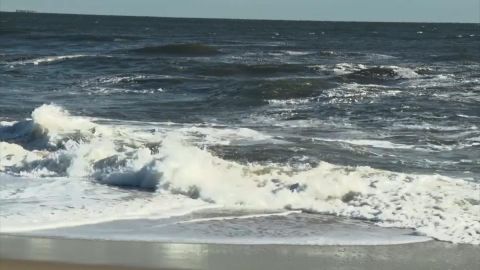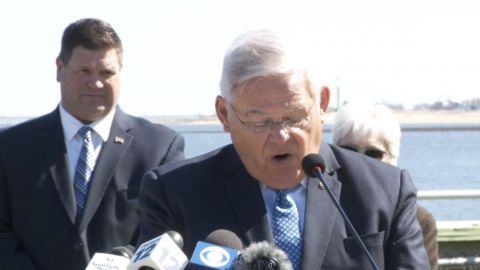lake hupatcong is a favorite spot for
boating fishing and just kicking back
but pollution can be a problem and
there's disagreement over how to keep
the lake clean leah mishkin reports as
part of our ongoing series focusing on
the human stories of climate change
peril and promise
lake o pakkong is new jersey's largest
lake as former governor christine todd
whitman puts it it's a jewel and yet it
has had real problems with
pollution in 2019 the lake closed to the
public because of harmful algal blooms
which can cause skin rashes and
digestive issues new jersey league of
conservation voters organize a boat tour
for local officials in the area on
wednesday to discuss how to prevent that
from happening again so what's happening
is we have this untreated storm water
runoff that's picking up pollution on
the land as it goes so think about pet
waste geese waste that helps algae grow
jennifer coffey says new developments
have to manage all of the rainwater that
falls onto their property they do that
by using a kind of asphalt that absorbs
water she says or by using green
infrastructure like stormwater basins
all of that helps to stop flooding from
happening which is ultimately the
problem that causes pollution from
getting into bodies of water scientists
warn climate change will bring heavy
rains to new jersey more often and that
will likely make the problem worse but
developments that date pre-2004 don't
have those same requirements in place
she says we have vast expanses of
parking lots and roofs and large
buildings that do nothing everyone on
this boat agrees there's a problem and
there needs to be a solution to keep
this lake clean how they reach that goal
though is where the differences lie one
solution is the storm water utility law
otherwise known as the flood defense act
which governor phil murphy signed into
law in 2019. it allows local governments
to impose a fee on a property owner if
they're found responsible for the
flooding largely due to a property
surfaces that contribute to runoff the
option under stormwater utility
would require that feed to then be used
to create structures that better manage
that storm water in philadelphia they
did this and it's less than ten dollars
a month and they are reducing the impact
of flooding mount arlington borough is
one of four towns on lake opakung the
mayor there says they all support green
infrastructure solutions but he doesn't
believe you need to impose a fee to get
to the goal he says it can be handled at
the local level new jersey has the
highest taxes
in the country
we can't live that way any longer people
are leaving new jersey there won't be
any money left to do what we need to do
to clean up these lakes in these rivers
i understand that for a politician a fee
is not popular
but what the stormwater utility does is
it holds those responsible for increased
flooding so they can manage the problem
so that it's not pushed off on the rest
of new jersey may not be an answer here
on the lake people may not want to be
willing to do that but on the other hand
you have some big challenges the other
option under a stormwater utility if
somebody who owns a lot of this
impervious cover some blacktop parking
lots rooftops and they don't want to pay
the fee what they can do is they can
manage their own storm water so far no
one in new jersey has put storm water
utility in place but jennifer coffey
says it's because of pandemic delays and
about a dozen communities are in the
initial phases for nj spotlight news
i'm leah mishkin



